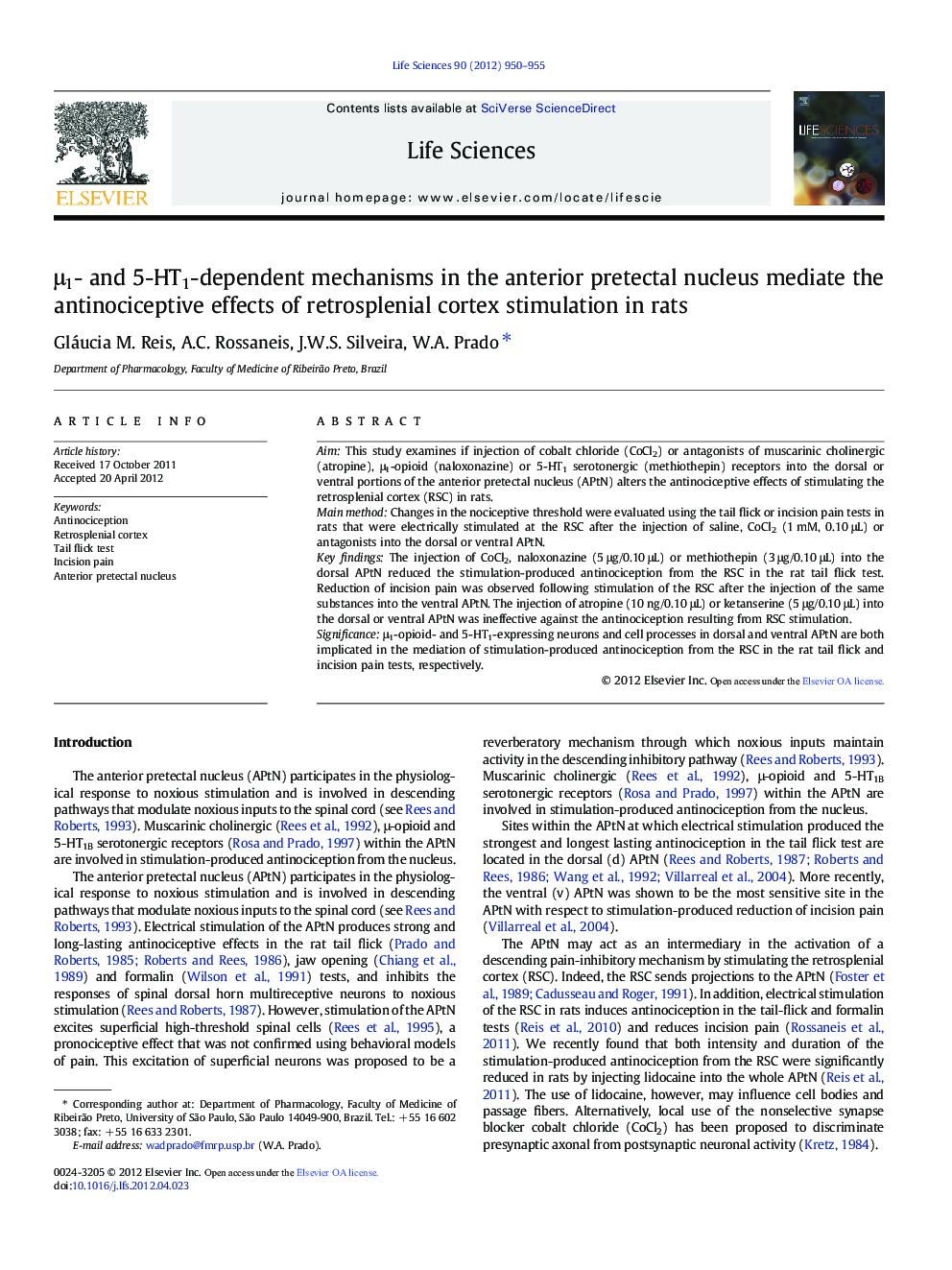| Article ID | Journal | Published Year | Pages | File Type |
|---|---|---|---|---|
| 5842563 | Life Sciences | 2012 | 6 Pages |
AimThis study examines if injection of cobalt chloride (CoCl2) or antagonists of muscarinic cholinergic (atropine), μ1-opioid (naloxonazine) or 5-HT1 serotonergic (methiothepin) receptors into the dorsal or ventral portions of the anterior pretectal nucleus (APtN) alters the antinociceptive effects of stimulating the retrosplenial cortex (RSC) in rats.Main methodChanges in the nociceptive threshold were evaluated using the tail flick or incision pain tests in rats that were electrically stimulated at the RSC after the injection of saline, CoCl2 (1 mM, 0.10 μL) or antagonists into the dorsal or ventral APtN.Key findingsThe injection of CoCl2, naloxonazine (5 μg/0.10 μL) or methiothepin (3 μg/0.10 μL) into the dorsal APtN reduced the stimulation-produced antinociception from the RSC in the rat tail flick test. Reduction of incision pain was observed following stimulation of the RSC after the injection of the same substances into the ventral APtN. The injection of atropine (10 ng/0.10 μL) or ketanserine (5 μg/0.10 μL) into the dorsal or ventral APtN was ineffective against the antinociception resulting from RSC stimulation.Significanceμ1-opioid- and 5-HT1-expressing neurons and cell processes in dorsal and ventral APtN are both implicated in the mediation of stimulation-produced antinociception from the RSC in the rat tail flick and incision pain tests, respectively.
